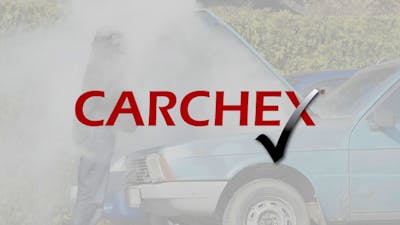Car Talk’s Ultimate Guide to Finding a Good Mechanic in 2024
This week in our Car Talk Community, member Walt46 asked a simple yet vexing question; How Do I Find A Good Mechanic?
Answering this question was one of Car Talk’s original goals for our Car Talk Community. There was a time when we could simply make a list, which we still maintain called the Car Talk's Mechanic Files. However, maintaining this list is tricky. Companies hire new workers, experienced people leave, and sadly, they pass away. With each passing, a lifetime of experience leaves our world.
Your author is a lifelong car nut who has moved around often, and I’m moving again this month. With each move, I lose my network. My great dentist, my amazing local healthcare providers, and my most important service provider, my mechanic. Or actually, mechanics plural, because as we will see, most vehicle owners don't rely on just one shop. Many use a few shops to keep their vehicles in top shape. We felt it was time to revisit the important question of how to find a trustworthy local mechanic or auto body shop.
Popular Warranty Providers
Google Maps and Reviews are Often The Answer
One resource we suggest to anyone seeking a trusted, local mechanic is to use one of Google's great apps to find the answer. When searching for a new service provider, a mechanic, for example, start with Google Maps. In Google Maps, if you search for “Mechanics Near Me” or “Mechanics Near YourCityName,” you will find a listing. The ones at the top have an Ad advertising symbol. You can view those, but they are not always the best answer to the question. Often they are not even that close by. Look a little lower, and the adverts will end. There you can find the listings that come up organically.
There is a wealth of information on the Google Maps summary page. You can see the business's location relative to your location if you allow Google Maps to know where you are in your settings. You can see its address and phone number and get directions. You can even see if it is open, how crowded that business is, and when it might be a little less busy. Most importantly, you can see customer ratings and a summary of the reviews. You can sort the reviews by “newest” to see the ones that are most recently posted.
If you read them over, you will find that most folks offer a few sentences describing their experience and most reviews are positive for mechanics. Without a doubt, you will find some negative reviews. Remember, there are grumpy folks in our world who look for ways to amplify bad experiences. You need to judge the negative reviews in this light. Look for a business with four stars out of five or higher. Look at the images too. You can find out if the place has multiple bays or is just one person in one bay. Choose whatever you prefer. Once you do find a good mechanic, circle back and drop a review of your own in Google Maps. Your fellow vehicle owners will benefit.
Why Not Go To The Dealer?
New vehicle dealers can service your car. And nearly every one of them will gladly fix your vehicle, even if it is not of the brand they are affiliated with. Most also use subcontractors for collision damage, detailing, glass repair, and pretty much any other auto-related repair you need. They are a one-stop solution. The reason most vehicle owners look for another option is cost.
Car Talk has many times had a staff member’s car repaired once at a dealer and then had that same job performed later at a local independent shop. Brakes and wheel bearings are classic examples. The dealer is the higher-cost option. And not by a little bit. The reason is not greed but culture.
New vehicle dealer service centers often have a “identify the failure - replace the part” mentality. This is not necessarily a bad thing, but it comes with two downsides. The first is that replacing a broken part may not reveal the underlying cause of the failure. So the replacement part can simply wear out again at the same point in its duty cycle. The second downside is that many “parts” are actually assemblies that may be possible to repair.
A classic example was illustrated in the popular program Wheeler Dealers. In one episode, the mechanic, Edd China, discovered that a pricey German car had a failed transmission. The dealer's fix may well have been to replace that component. A solution with a five-figure price tag. Edd fixed it by removing the transmission and opening it up only to find a simple fastener that needed replacement. The car was fixed and returned to top form for the cost of a day of labor. Still not free by any means, but at a cost drastically lower than the dealer’s solution might have been.
Car dealers may be among the largest employers in your small town. They also have big overhead costs. Like all big enterprises, they need to comply with big-business government mandates related to paid leave, health insurance, and other employee issues. They have big showrooms, advertising budgets, and they carry millions in inventory during normal times. The service center carries the burden of recouping these tremendous costs. Paid for by the service center patrons.
In many cases, dealers will also default to a new branded part to fix or maintain your car when a much less expensive and perhaps even superior aftermarket part may be widely available. For many drivers of older cars, the least expensive part available to solve the problem may be the right choice. For all of these reasons, a very large percentage of vehicle owners opt not to visit their new car dealer when they need vehicle maintenance or repair services.
Big Box Retailers Walmart, Costco & The Like
A vast number of vehicle owners use big box retailers like Walmart and Costco for many common vehicle services. This isn’t new. Sears was a major player in vehicle services for a good part of the last century. Many drivers are entirely satisfied with their experiences. The prices are hard to beat. The warranties and follow-up services are almost unmatched. You won’t find us bad-mouthing the big box stores for simple maintenance, tire work, and batteries.
That said, the turnover at these locations can be pretty rapid, and you may not be able to forge a one-to-one relationship with the actual mechanic. You may have a different person work on your car every time you visit. For many car owners, that is not the vibe they seek.
Vehicle Repair Chains
Like the big box stores, chains like Jiffy Lube, Meineke, and Midas are easy-to-use vehicle repair options. These chains offer more services, and some even have loaner cars! We have had some good and some not-so-good experiences with such chains, and reviews can vary. We won’t rule out these chains as an option, but you will need to judge each location on its own. These chains are only as good as the local franchise owner, manager, and workers.
That Perfect Local Independent Shop
Many of us wish to work with a local shop staffed by people with whom we will create lasting relationships. We come to trust them to the point that we can let them do the work free from worry that we will be taken advantage of or up-sold on unnecessary work.
These shops are everywhere in America. However, they vary a bit. Some have just one bay and one main mechanic. That’s fine, but if that person is busy, you wait your turn. If that person is sick with COVID, you wait a long time. When that person is on vacation, you wait some more. For this reason, a shop with three to six bays and a larger staff may be better if you count on fast service.
Local shops may also do most things but not all. For example, one of my favorite mechanics of all time didn’t do tires or alignments. He could rotate tires and tell you if you needed a tire replaced but would send his customers to other retailers to buy them. Luckily, there was a local tire-only provider. These two shops were like a team, but it meant you needed two appointments sometimes. Our advice if you are starting new is to look for a shop with a modern balancing machine (like a Hunter Roadforce machine). Any shop can order tires online to be delivered the same day, so if they have the tools, they can be your tire supplier. Will they be the absolute lowest-cost tire supplier? Nope. So if that is your top priority, a tire chain or the big box stores may augment your local shop’s services.
Read more on the topic of the Best Tires in the industry here.
Specialty Service Providers
We’ve already addressed some of the vehicle maintenance specialties naming battery and tire suppliers. Others include collision damage, auto body shops, detailing, glass repair and replacement, and infotainment and audio shops. For many vehicle owners passionate about keeping their cars in top condition, it takes a village. Using just one provider or even just one source to find providers is tricky. Like maintaining one’s home, keeping a car running right requires that we have a list of service providers who can help us.
Finding An Independent Local Shop For Your Specialty Brand
While a good mechanic can work on almost any make or model, some shops specialize in a particular brand. Examples of this include local mechanics that work on, say, Maseratis and Ferraris. However, even everyday brands like Honda/Acura are often a focus for a local shop. These local shops may be helpful for you if one is available. They know the technical service bulletins inside and out and know where to source reliable parts at a reasonable cost.
A great way to find a trusted local mechanic for a particular brand is in a social media club. Such clubs exist for almost every brand and even exist for specific trims of individual models. For example, the Prius Prime club on Facebook is a great club and very active. Need an affordable mechanic to work on your aging Prius’s high voltage battery? These folks know where one may be found.
Read more on the topic of Owning a Car here.













